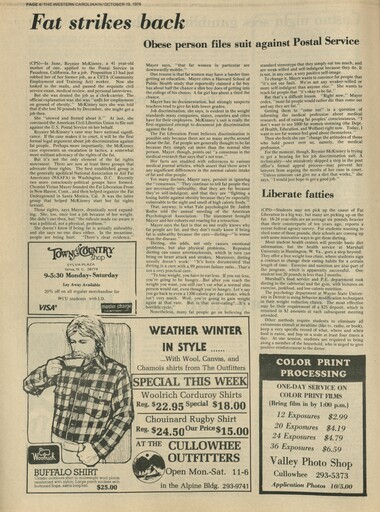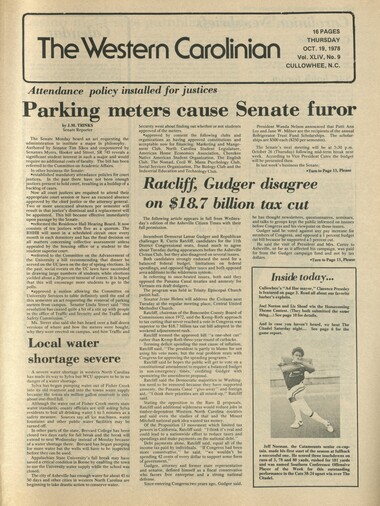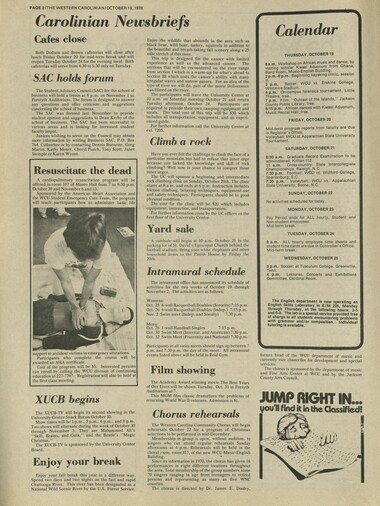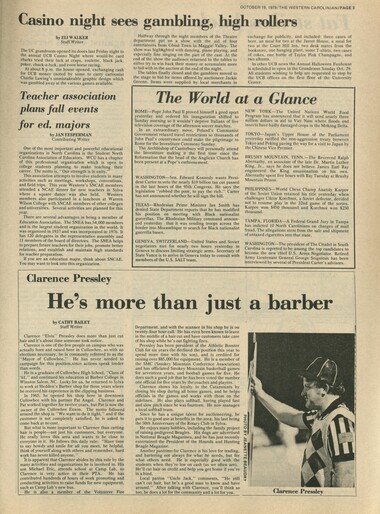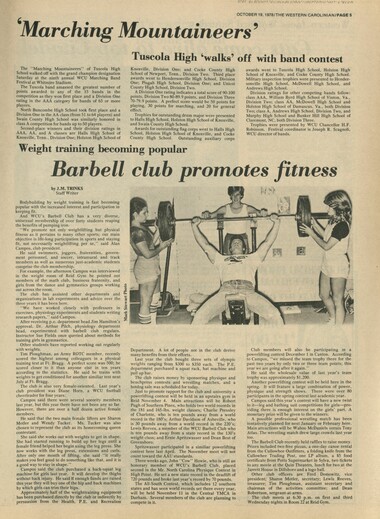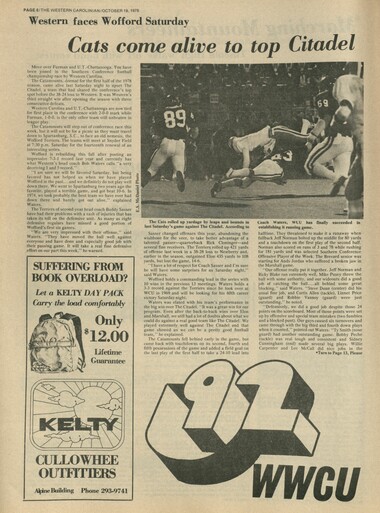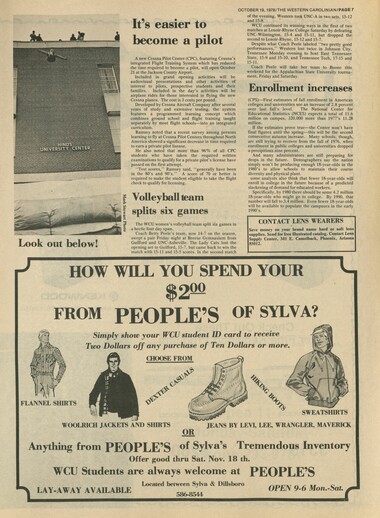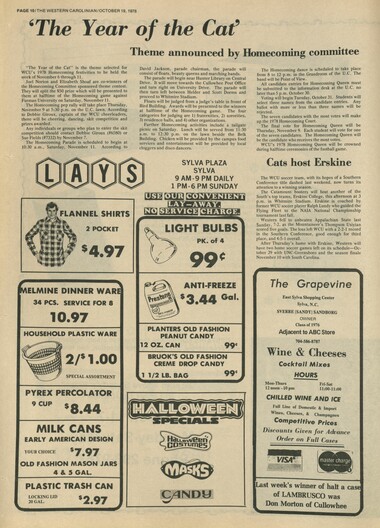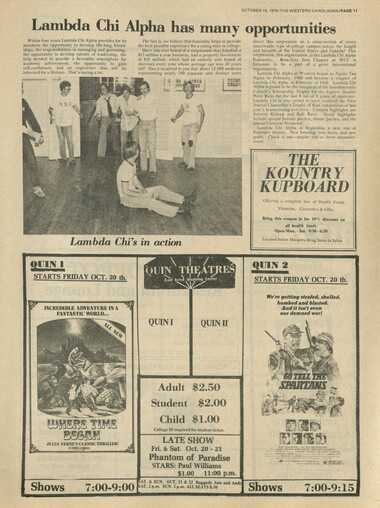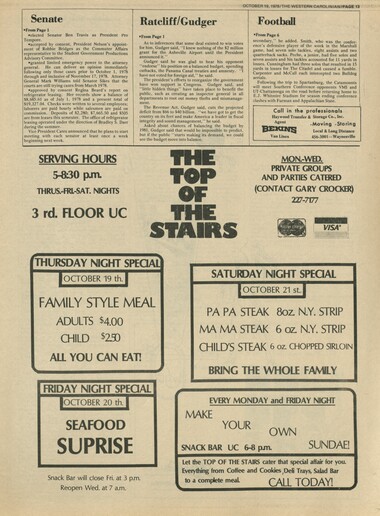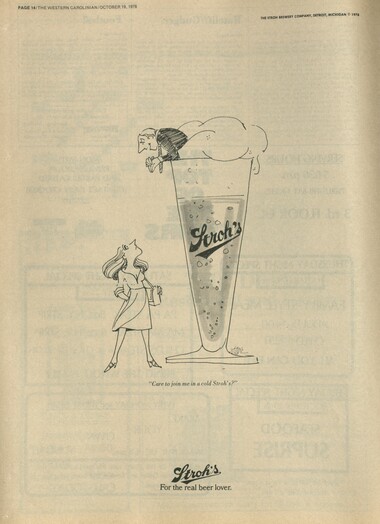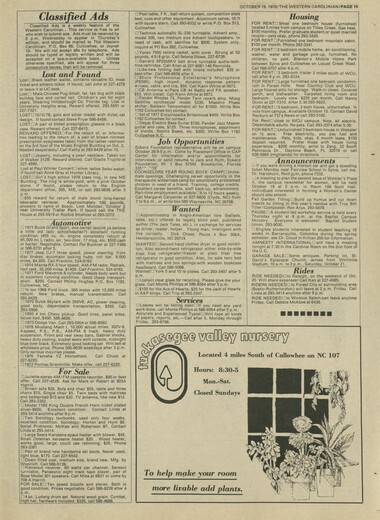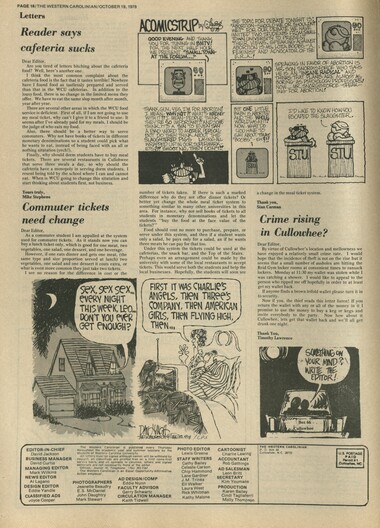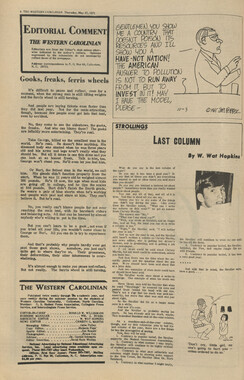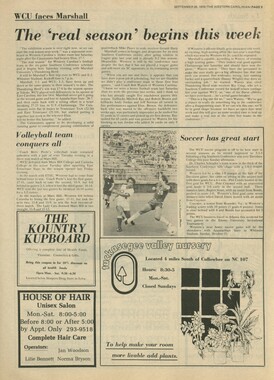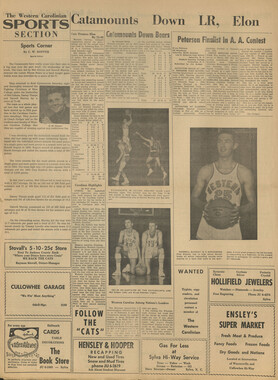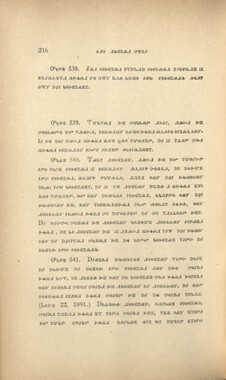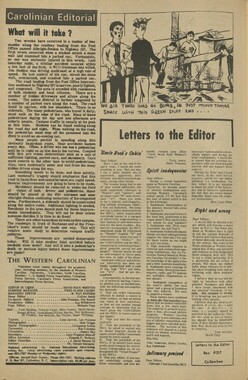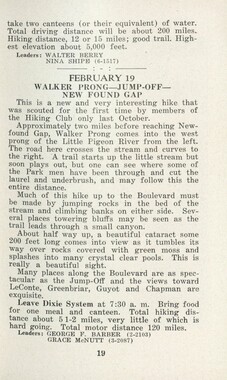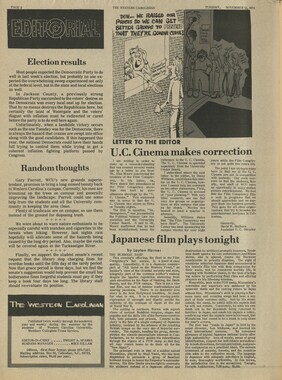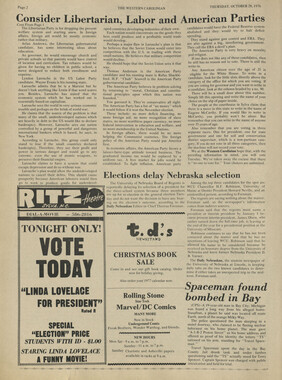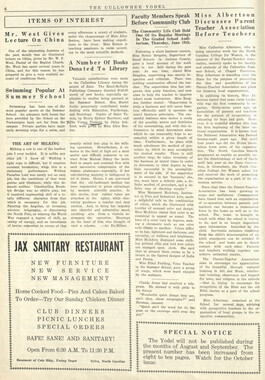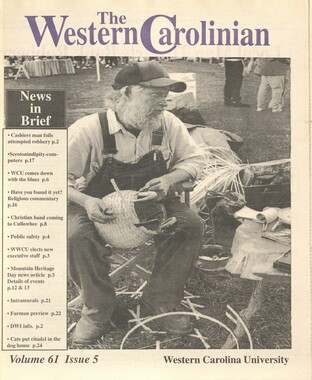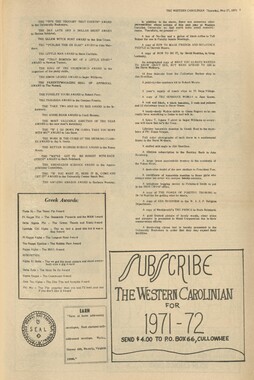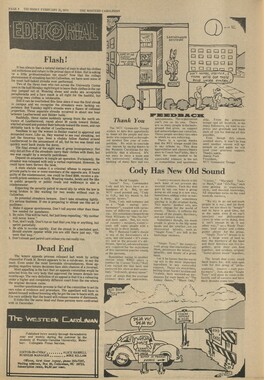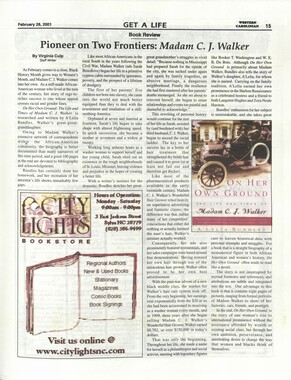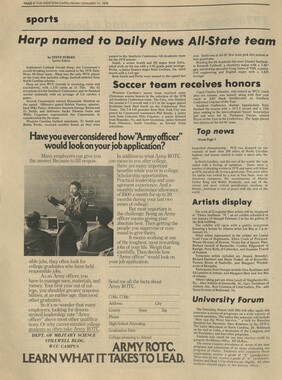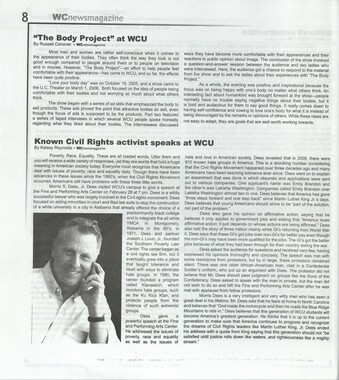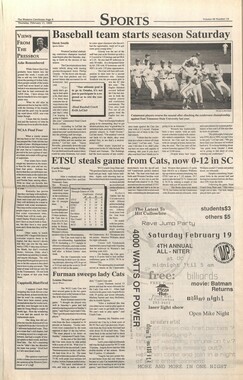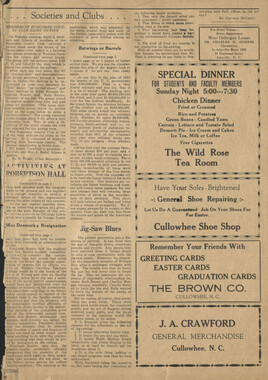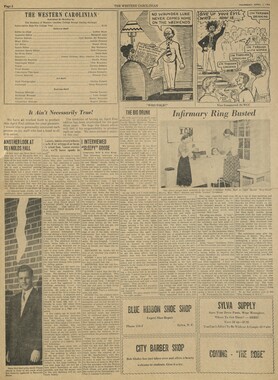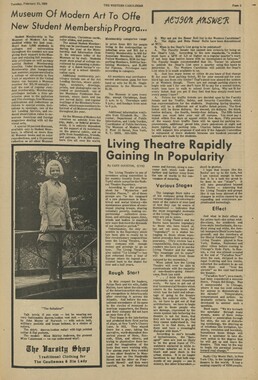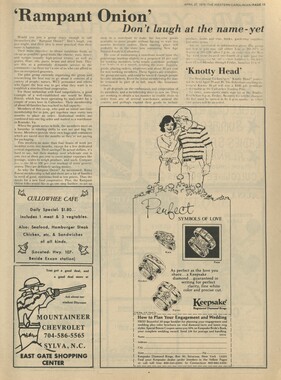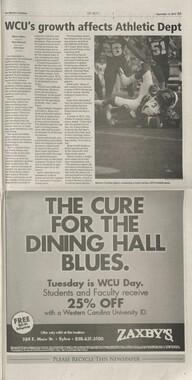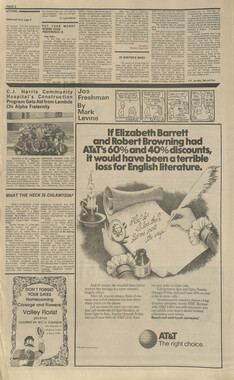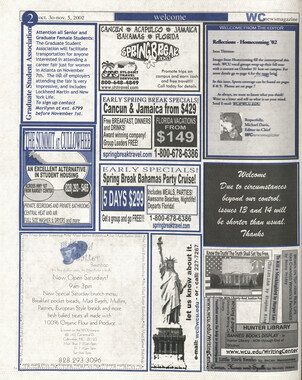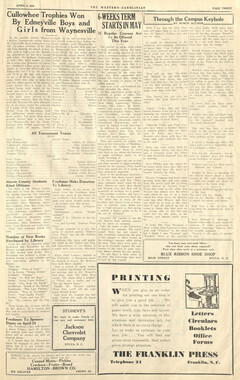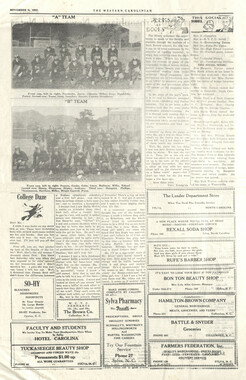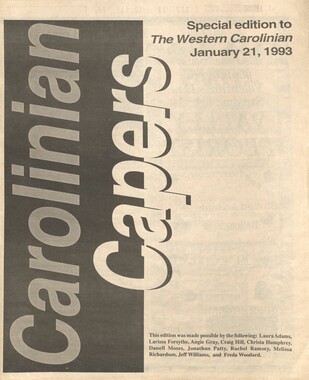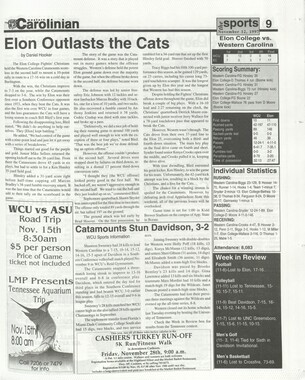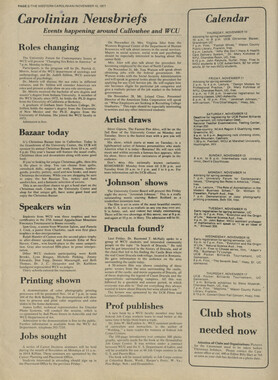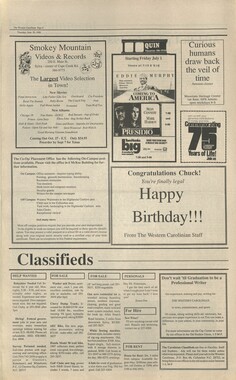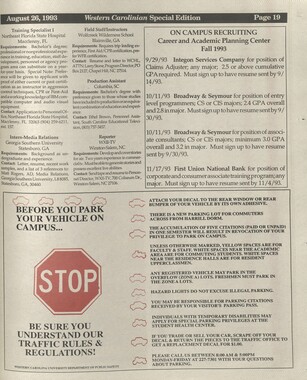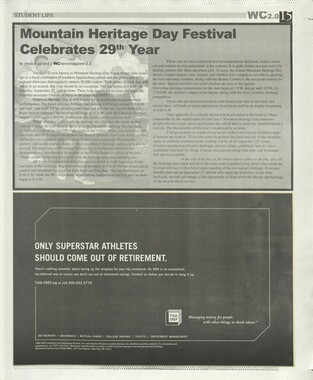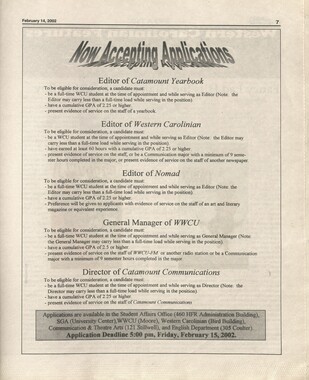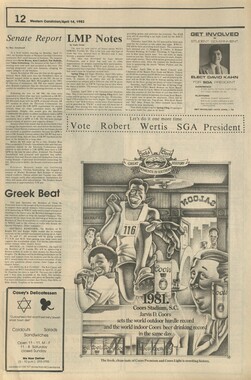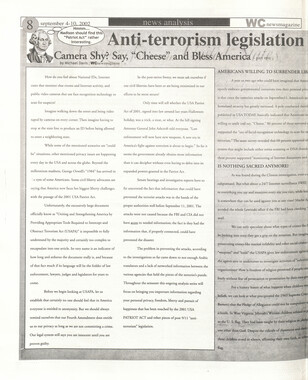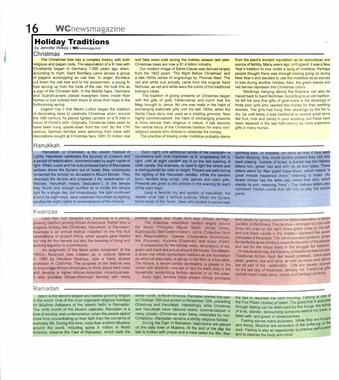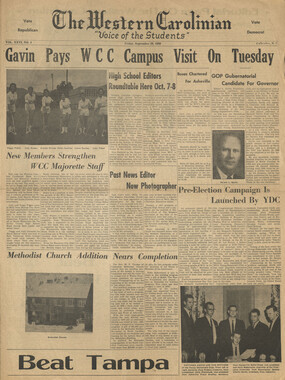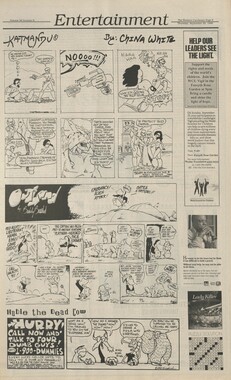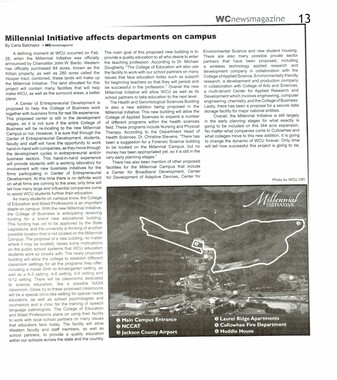Western Carolina University (21)
View all
- Canton Champion Fibre Company (2308)
- Cherokee Traditions (291)
- Civil War in Southern Appalachia (165)
- Craft Revival (1942)
- George Masa Collection (137)
- Great Smoky Mountains - A Park for America (3080)
- Highlights from Western Carolina University (422)
- Horace Kephart (973)
- Journeys Through Jackson (159)
- LGBTQIA+ Archive of Jackson County (89)
- Oral Histories of Western North Carolina (318)
- Picturing Appalachia (6617)
- Stories of Mountain Folk (413)
- Travel Western North Carolina (153)
- Western Carolina University Fine Art Museum Vitreograph Collection (129)
- Western Carolina University Herbarium (92)
- Western Carolina University: Making Memories (738)
- Western Carolina University Publications (2491)
- Western Carolina University Restricted Electronic Theses and Dissertations (146)
- Western North Carolina Regional Maps (71)
- World War II in Southern Appalachia (131)
University of North Carolina Asheville (6)
View all
- Allanstand Cottage Industries (62)
- Appalachian National Park Association (53)
- Bennett, Kelly, 1890-1974 (1463)
- Berry, Walter (76)
- Brasstown Carvers (40)
- Carver, George Washington, 1864?-1943 (26)
- Cathey, Joseph, 1803-1874 (1)
- Champion Fibre Company (233)
- Champion Paper and Fibre Company (297)
- Cherokee Indian Fair Association (16)
- Cherokee Language Program (22)
- Crowe, Amanda (40)
- Edmonston, Thomas Benton, 1842-1907 (7)
- Ensley, A. L. (Abraham Lincoln), 1865-1948 (275)
- Fromer, Irving Rhodes, 1913-1994 (70)
- George Butz (BFS 1907) (46)
- Goodrich, Frances Louisa (120)
- Grant, George Alexander, 1891-1964 (96)
- Heard, Marian Gladys (60)
- Kephart, Calvin, 1883-1969 (15)
- Kephart, Horace, 1862-1931 (313)
- Kephart, Laura, 1862-1954 (67)
- Laney, Gideon Thomas, 1889-1976 (439)
- Masa, George, 1881-1933 (61)
- McElhinney, William Julian, 1896-1953 (44)
- Niggli, Josephina, 1910-1983 (10)
- North Carolina Park Commission (105)
- Osborne, Kezia Stradley (9)
- Owens, Samuel Robert, 1918-1995 (11)
- Penland Weavers and Potters (36)
- Roberts, Vivienne (15)
- Roth, Albert, 1890-1974 (142)
- Schenck, Carl Alwin, 1868-1955 (1)
- Sherrill's Photography Studio (2565)
- Southern Highland Handicraft Guild (127)
- Southern Highlanders, Inc. (71)
- Stalcup, Jesse Bryson (46)
- Stearns, I. K. (213)
- Thompson, James Edward, 1880-1976 (226)
- United States. Indian Arts and Crafts Board (130)
- USFS (683)
- Vance, Zebulon Baird, 1830-1894 (1)
- Weaver, Zebulon, 1872-1948 (58)
- Western Carolina College (230)
- Western Carolina Teachers College (282)
- Western Carolina University (2008)
- Western Carolina University. Mountain Heritage Center (18)
- Whitman, Walt, 1819-1892 (10)
- Wilburn, Hiram Coleman, 1880-1967 (73)
- Williams, Isadora (3)
- Cain, Doreyl Ammons (0)
- Crittenden, Lorraine (0)
- Rhodes, Judy (0)
- Smith, Edward Clark (0)
- Appalachian Region, Southern (3032)
- Asheville (N.C.) (1945)
- Avery County (N.C.) (26)
- Blount County (Tenn.) (195)
- Buncombe County (N.C.) (1680)
- Cherokee County (N.C.) (283)
- Clay County (N.C.) (556)
- Graham County (N.C.) (238)
- Great Smoky Mountains National Park (N.C. and Tenn.) (525)
- Haywood County (N.C.) (3573)
- Henderson County (N.C.) (70)
- Jackson County (N.C.) (4925)
- Knox County (Tenn.) (35)
- Knoxville (Tenn.) (13)
- Lake Santeetlah (N.C.) (10)
- Macon County (N.C.) (421)
- Madison County (N.C.) (216)
- McDowell County (N.C.) (39)
- Mitchell County (N.C.) (135)
- Polk County (N.C.) (35)
- Qualla Boundary (982)
- Rutherford County (N.C.) (78)
- Swain County (N.C.) (2185)
- Transylvania County (N.C.) (270)
- Watauga County (N.C.) (12)
- Waynesville (N.C.) (86)
- Yancey County (N.C.) (72)
- Aerial Photographs (3)
- Aerial Views (60)
- Albums (books) (4)
- Articles (1)
- Artifacts (object Genre) (228)
- Bibliographies (1)
- Biography (general Genre) (2)
- Cards (information Artifacts) (38)
- Clippings (information Artifacts) (192)
- Copybooks (instructional Materials) (3)
- Crafts (art Genres) (622)
- Depictions (visual Works) (21)
- Design Drawings (1)
- Digital Moving Image Formats (2)
- Drawings (visual Works) (185)
- Envelopes (101)
- Exhibitions (events) (1)
- Facsimiles (reproductions) (1)
- Fiction (general Genre) (4)
- Financial Records (12)
- Fliers (printed Matter) (67)
- Glass Plate Negatives (381)
- Guidebooks (2)
- Internegatives (10)
- Interviews (823)
- Land Surveys (102)
- Letters (correspondence) (1045)
- Manuscripts (documents) (618)
- Maps (documents) (177)
- Memorandums (25)
- Minutes (administrative Records) (59)
- Negatives (photographs) (6090)
- Newsletters (1290)
- Newspapers (2)
- Notebooks (8)
- Occupation Currency (1)
- Paintings (visual Works) (1)
- Pen And Ink Drawings (1)
- Periodicals (194)
- Personal Narratives (10)
- Photographs (12977)
- Plans (maps) (1)
- Poetry (6)
- Portraits (4568)
- Postcards (329)
- Programs (documents) (181)
- Publications (documents) (2444)
- Questionnaires (65)
- Relief Prints (26)
- Sayings (literary Genre) (1)
- Scrapbooks (282)
- Sheet Music (2)
- Slides (photographs) (402)
- Songs (musical Compositions) (2)
- Sound Recordings (802)
- Specimens (92)
- Speeches (documents) (18)
- Tintypes (photographs) (8)
- Transcripts (329)
- Text Messages (0)
- A.L. Ensley Collection (275)
- Appalachian Industrial School Records (7)
- Appalachian National Park Association Records (336)
- Axley-Meroney Collection (2)
- Bayard Wootten Photograph Collection (20)
- Bethel Rural Community Organization Collection (7)
- Blumer Collection (5)
- C.W. Slagle Collection (20)
- Canton Area Historical Museum (2110)
- Carlos C. Campbell Collection (462)
- Cataloochee History Project (64)
- Cherokee Studies Collection (4)
- Daisy Dame Photograph Album (5)
- Daniel Boone VI Collection (1)
- Doris Ulmann Photograph Collection (112)
- Elizabeth H. Lasley Collection (1)
- Elizabeth Woolworth Szold Fleharty Collection (4)
- Frank Fry Collection (95)
- George Masa Collection (173)
- Gideon Laney Collection (452)
- Hazel Scarborough Collection (2)
- Hiram C. Wilburn Papers (28)
- Historic Photographs Collection (236)
- Horace Kephart Collection (861)
- Humbard Collection (33)
- Hunter and Weaver Families Collection (1)
- I. D. Blumenthal Collection (4)
- Isadora Williams Collection (4)
- Jesse Bryson Stalcup Collection (47)
- Jim Thompson Collection (224)
- John B. Battle Collection (7)
- John C. Campbell Folk School Records (80)
- John Parris Collection (6)
- Judaculla Rock project (2)
- Kelly Bennett Collection (1482)
- Love Family Papers (11)
- Major Wiley Parris Civil War Letters (3)
- Map Collection (12)
- McFee-Misemer Civil War Letters (34)
- Mountain Heritage Center Collection (4)
- Norburn - Robertson - Thomson Families Collection (44)
- Pauline Hood Collection (7)
- Pre-Guild Collection (2)
- Qualla Arts and Crafts Mutual Collection (12)
- R.A. Romanes Collection (681)
- Rosser H. Taylor Collection (1)
- Samuel Robert Owens Collection (94)
- Sara Madison Collection (144)
- Sherrill Studio Photo Collection (2558)
- Smoky Mountains Hiking Club Collection (616)
- Stories of Mountain Folk - Radio Programs (374)
- The Reporter, Western Carolina University (510)
- Venoy and Elizabeth Reed Collection (16)
- WCU Gender and Sexuality Oral History Project (36)
- WCU Mountain Heritage Center Oral Histories (25)
- WCU Oral History Collection - Mountain People, Mountain Lives (71)
- WCU Students Newspapers Collection (1923)
- Western North Carolina Tomorrow Black Oral History Project (69)
- William Williams Stringfield Collection (2)
- Zebulon Weaver Collection (109)
- African Americans (390)
- Appalachian Trail (35)
- Artisans (521)
- Cherokee art (84)
- Cherokee artists -- North Carolina (10)
- Cherokee language (21)
- Cherokee pottery (101)
- Cherokee women (208)
- Church buildings (190)
- Civilian Conservation Corps (U.S.) (111)
- College student newspapers and periodicals (2012)
- Dams (108)
- Dance (1023)
- Education (222)
- Floods (63)
- Folk music (1015)
- Forced removal, 1813-1903 (2)
- Forest conservation (220)
- Forests and forestry (1198)
- Gender nonconformity (4)
- Great Smoky Mountains National Park (N.C. and Tenn.) (181)
- Hunting (47)
- Landscape photography (25)
- Logging (122)
- Maps (83)
- Mines and mineral resources (9)
- North Carolina -- Maps (18)
- Paper industry (38)
- Postcards (255)
- Pottery (135)
- Railroad trains (72)
- Rural electrification -- North Carolina, Western (3)
- School integration -- Southern States (2)
- Segregation -- North Carolina, Western (5)
- Slavery (5)
- Sports (452)
- Storytelling (243)
- Waterfalls -- Great Smoky Mountains (N.C. and Tenn.) (66)
- Weaving -- Appalachian Region, Southern (280)
- Wood-carving -- Appalachian Region, Southern (328)
- World War, 1939-1945 (173)
Western Carolinian Volume 44 Number 09
Item
Item’s are ‘child’ level descriptions to ‘parent’ objects, (e.g. one page of a whole book).
-
-
PAGE 4/THE WESTERN CAROLINAIN/OCTOBER 19. 1978 Fat strikes back Obese person files suit against Postal Service (CPS)—In June, Reynier McKinney, a 41 year-old mother of one, applied to the Postal Service in Pasadena, California, for a job. Proposition 13 had just robbed her of her former job, as a CETA (Community Employment and Training Act) worker. Now she looked to the mails, and passed the requisite civil service exam, medical review, and personal interviews. But she was denied the job as a clerk-carrier. The official explanation was she was "unfit for employment on ground of obesity." McKinney says she was told that if she lost 50 pounds by December, she might get a job then. She "stewed and fretted about it." At last, she convinced the American Civil Liberties Union to file suit against the U.S. Postal Service on her behalf. Reynier McKinney's case may have national significance. If the case makes it to court, it will be the first formal legal argument about job discrimination against fat people. Perhaps more importantly, the McKinney case represents an escalation in tactics, a somewhat more militant advocacy of the rights of the fat. But it's not the only element of the fat rights movement. There are now at least three groups that advocate those rights. The best established group is the generally apolitical National Association to Aid Fat Americans (NAAFA) in Washington, D.C. Recently two more consciously-political groups have formed. Chemist Vivian Mayer founded the Fat Liberation Front in New Haven, Conn., and then helped organize the Fat Underground in Santa Monica, Cal. It was the latter group that helped McKinney start her fat rights lawsuit. Those rights, says Mayer, drastically need expanding. She, too, once lost a job because of her weight. She didn't sue then, but "the ridicule made rne aware it was a political, not a physical, problem." She doesn't know if being fat is actually unhealthy, and she says no one does either. In the meantime, people are being hurt. "There's clear evidence," SYLVA PLAZA Svlva, N. C. 28779 9-5:30 Monday- Saturday Lay Away Available 20% off on all regular merchandise for WCU students with I.D. VISA* master charae Mayer says, "that fat women in particular are downwardly mobile." One reason is that fat women may have a harder time getting an education. Mayer cites a Harvard School of Public Health study that reportedly claimed a fat boy has about half the chance a slim boy does of getting into the college of his choice. A fat girl has about a third the chance. Mayer has no documentation, but strongly suspects teachers tend to give fat kids lower grades. Job discrimination, she says, is evident in the weight standards many companies, states, counties and cities have for their employees. McKinney's suit is really the first organized attempt to document job discrimination against the fat. The Fat Liberation Front believes discrimination is possible only because there are so many myths around about the fat. Fat people are generally thought to be fat because they simply eat more than the normal slim person. Mayer, though, points out "a consensus in the medical research that says that's not true." Her facts are studded with references to various medical journal articles, which assert that there aren't any significant differences in the normal caloric intake of fat and slim people. Yet many doctors, Mayer says, persisit in ignoring the "consensus." They continue to tell fat people they are necessarily unhealthy, that they are fat because they're self-indulgent, and that they are "fighting a losing battle against obesity because they're especially vulnerable to the sight and smell of high caloric foods." That, anyway, is what Yale psychologist Dr. Judith Rodin told the annual meeting of the American Psychological Association. The statement brought Mayer and her cohorts out roaring for a retraction. Mayer says the fact is that no one really knows why fat people are fat, and they don't really know if being fat is unhealthy because the cure—dieting—"is worse than the disease." Dieting, she adds, not only causes emotional problems, but also physical problems. Repeated dieting can cause arteriosclerosis, which in turn can bring on heart attack and strokes. Moreover, dieting usually doesn't work: "It's been documented that dieting is a cure with a 99 percent failure ratio...That's not a very practical cure. "To lose weight, you have to eat less. If you eat less, you're going to be hungry...But after you reach the weight you want, you still can't eat what a normal slim person would eat, even though you're hungry. Let's say you go back to even a 1200 caloric per day intake, which isn't very much. Well, you're going to gain weight again at that rate. But is that over-eating?...It's a horrible cycle." Nonetheless, many fat people go on believing the WEATHER WINTER IN STYLE ...With Wool, Canvas, and Chamois shirts from The Outfitters SPECIAL THIS WEEIfl Woolrich Corduroy Shirts Reg $22.95 Special $18.00 Chouinard Rugby Shirt R,»*24.50OurMc,*15.00 BUFFALO SHIRT Classic outdoors shirt in midweight wool plaids reinforced with nylon. Large patch pockets with buttoned flaps, extra long tail. djn e nn at the CULLOWHEE OUTFITTERS Open Mon.-Sat. 11-6 in the Alpine Bldg. 293-9741 standard stereotype that they simply eat too much, and are weak-willed and self-indulgent because they do. It is not, in any case, a very positive self-image. To change it, Mayer wants to convince fat people that "it's not our fault. We're not any weaker-willed or more self-indulgent than anyone else." She wants to teach fat people that "it's okay to be fat." But that's a difficult lesson. "Right now," Mayer cedes, "most fat people would rather die than come out and say they are fat." Getting them to "come out" is a question of informing the medical profession about medical research, and of raising fat peoples' consciousness. "I don't want to see 1000 fat women storming (the Dept. of Health, Education, and Welfare) right now. Today, 1 want to see fat women feel good about themselves." Then she feels she can "change the attitudes of those who hold power over us, namely, the medical profession." For the moment, though, Reynier McKinney is trying to get a hearing for her job discrimination suit. A technicality—she mistakenly skipped a step in the post office's formal appeal process—may prevent her lawyers from arguing the merits of her case in court. "Unless someone can give me a diet that works," she says, "I would just hope to get a good job." Liberate fatties (CPS)—Students may not pick up the cause of Fat Liberation in a big way, but many are picking up on the fat. 18-24 year-olds are an average six pounds heavier than their counterparts of ten years ago, reports a recent federal agency survey. For students wanting to shed some of those pounds, their schools are coming up with some innovative ways to get them dieting. Most student health centers will provide basic diet information, but the health service at Marshall University in Huntington, W. Va., goes a step beyond. They offer a free weight loss clinic, where students sign a contract to change their eating habits for a certain length of time. Exercise and nutrition are also part of the program, which is apparently successful. One student lost 20 pounds in less than 2 months. Marshall's food service and P.E. department took dieting to the cafeterias and the gym, with lectures on exercise, junkfood, and low-calorie nutrition. The psychology department at Wayne State University in Detroit is using behavior modification techniques in their weight reduction clinics. The most effective may be their requirement of a $25 deposit, which is returned in $2 amounts at each subsequent meeting attended. Other methods require students to eliminate all extraneous stimuli at mealtime (like tv, radio, or book), keep a very specific record of what, where and when food is eaten, and hop on a scale at least four times a day. At one session, students are required to bring along a member of the household, who is urged to give positive reinforcement to the dieter. COLOR PRINT PROCESSING ONE-DAY SERVICE ON COLOR PRINT FILMS (Bring film in by 1:00 p.m.) 12 Exposures $2.99 20 Exposures $4.19 24 Exposures $4.79 36 Exposures $6.59 Valley Photo Shop Cullowhee 293-5373 Application Photos 10/5.00
Object
Object’s are ‘parent’ level descriptions to ‘children’ items, (e.g. a book with pages).
-
The Western Carolinian is Western Carolina University’s student-run newspaper. The paper was published as the Cullowhee Yodel from 1924 to 1931 before changing its name to The Western Carolinian in 1933.
-
